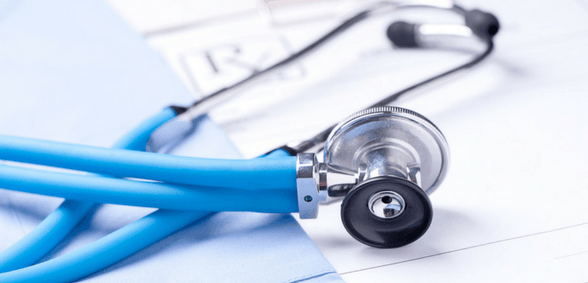
CREDIT: This story was first seen in BBC News
Parts of the NHS are experiencing intense winter pressure, with one hospital saying people should only attend for emergency treatment, BBC News reports.
Patients for Milton Keynes University Hospital face “significant delays” and ambulance trusts in England’s east and north-east are on the highest alert.
Separately, a doctor apologised on Twitter for “third world conditions” in the hospital where he works in Stoke.
NHS England has asked hospitals to delay many pre-planned operations.
Its National Emergency Pressures Panel, which met for the second time on Tuesday, said it had extended the deadline for deferral of all non-urgent inpatient elective care to January 31, to free up capacity for the sickest of patients.
But NHS England said cancer operations and time-critical procedures should go ahead as planned.
The situation is not unprecedented. Each year the service comes under increased pressure in the winter, largely as a result of an increase in certain illnesses in winter, such as flu.
It is too early to judge how bad this year’s pressures are compared with previous years.
The NHS does release regular statistics, but these are not real-time – meaning there is always a lag of a week or two to learn the full picture.
Milton Keynes University Hospital said it was facing pressure as a result of “very high numbers of patients seeking emergency medical care”.
It said the hospital had opened an “unprecedented number of escalation [extra] beds” in order to provide care for acutely unwell patients and warned that patients attending its emergency department would be treated in order of clinical priority.
The hospital’s chief executive, Prof Joe Harrison, said: “We are seeing very high numbers of very sick patients in the emergency department and fewer patients being able to be discharged – many because they also remain in need of acute care.
“I would urge people to avoid the hospital’s emergency department unless it is a genuine emergency.
“Staff are working under incredible pressure to look after the patients in our care. I cannot overstate that. We are doing our best in extraordinarily difficult circumstances.”
Meanwhile, Dr Richard Fawcett, whose Twitter profile lists him as a consultant at University Hospitals of North Midlands NHS Trust, apologised via Twitter for “third world conditions” in his hospital department.
The hospital trust responded by saying it had been under “severe and sustained pressure over the Christmas period” and this had “continued into the new year”.
The trust’s medical director, Dr John Oxtoby, added: “Our staff want the very best for our patients and at times they find the situation frustrating, which can be reflected on social media.
“However, we are a leading trauma, stroke and cardiac centre and have been regularly praised by external independent commentators for the quality of compassionate care provided at our hospitals despite all our pressures.”
Ambulance services in the north-east and east of England said they had reached their highest operational alert level – number four.
The North East Ambulance Service said it had been hit by “unprecedented levels of demand” over the Christmas and new year period.
It said it was “asking some patients, where appropriate, if they have alternative transport options, such as a family member”.
Between December 23 and January 1, it took more than 40,000 NHS 111 calls and more than 16,000 999 calls – compared to around 28,000 NHS 111 calls and 15,000 999 calls in the same period last year.
It advised members of the public to consult a GP, pharmacist, local walk-in centre or to call NHS 111 if they did not require emergency care.
A spokesman for the Scottish Ambulance Service said it had been at level three since Friday.
A spokesman added: “We are experiencing a high call demand, but that is not unusual at this time of year.”
A spokesman for the Northern Ireland Ambulance Service said Northern Ireland used a different system.
There are four major hospitals served by the ambulance service and GP and 999 calls are being redirected away from the Ulster Hospital in Dundonald, County Down to the other three major hospitals, which are currently operating normally.
Don’t forget to follow us on Twitter, or connect with us on LinkedIn!

Be the first to comment